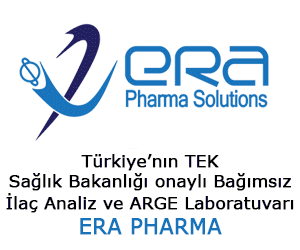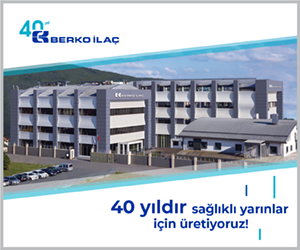İlk bakışta, küresel ilaç endüstrisi genellikle yavaş hareket eden, muhafazakar ve değişime karşı dirençli olarak kabul edilir ve blockchain gibi bir yenilik için kısır bir zemin oluşturur.
Fakat,
Eski Teva CEO’su Yitzhak Peterburg’un öngördüğü gibi; en sona kalan “geleneksel” endüstrilerden biri olan ilaç, bu tür teknik yeniliklerden “devasa bir bozulmaya” uğrayabilir.
How will blockchain impact pharma?
At first glance, the global pharmaceutical industry, often regarded as slow-moving, conservative and resistant to change, appears infertile ground for an innovation like blockchain to take hold.
In the common imagination, blockchain is associated with Bitcoin and related so-called ‘cryptocurrencies’ – the wild west of financial markets that many in the sector have ruled out as being unstable and unsustainable.
But while cryptocurrencies may have an uncertain future, the underlying technology that makes them possible is a safer bet.
Blockchain is quietly finding new and potentially transformative applications across industries, unlocking concrete benefits for pioneers exploring its use in voting systems, finance, supply chain efficiency and more.
As former Teva chief executive Yitzhak Peterburg forecast, pharma, one of the last “traditional” industries, may be about to undergo “huge disruption” from tech innovations of this kind.
What is blockchain and how does it work?
A blockchain is a distributed virtual ledger in which transactions are processed, validated and recorded. New transactions are bundled into ‘blocks’ which are added to the chain using cryptography.
Critically, the job of validating and maintaining the ledger is distributed across different ‘nodes’ that each hold a copy of the overall ledger, making it more or less impossible to corrupt or hack part of the system.
This ‘strength in numbers’ approach enables secure and transparent processing of transactions, without the cost or inefficiency of relying on a third party.
For cryptocurrencies like Bitcoin, Ethereum, Ripple, Stellar, Litecoin, and many more, the transactions involved are financial, but any kind of data can be processed using distributed ledger technology (DLT), and a number of firms are starting to offer products on this basis.
Blockchain in pharma
Blockchains, or DLTs, will in coming years prove to be a powerful tool for different parts of the pharmaceutical and healthcare sectors to record sensitive information such as patient health data in a permanent and incorruptible way.
The technology will also allow the industry to become more efficient and secure in important respects.
Supply chain management
One of the biggest and most important uses for DLT in future will be in supply chain management.
Projects in the global pharmaceutical industry, perhaps uniquely, involve the distribution and supply of a plethora of products across multiple countries and jurisdictions, with important considerations of safety, security and data protections in play at every step of the way.
Digital ledgers are already being developed that can be used to track each stage of the supply chain at both the level of the individual drug and for products as a whole, enabling manufacturers to eliminate counterfeiting and other types of fraudulent activity.
In Texas, USA, One Network Enterprises has developed an end-to-end fulfillment product that manages the distribution process of essential medical supplies, using its proprietary ONE Blockchain platform.
One Network says its technology affords key benefits like serial tracking, lot tracking, lot splitting and targeted recalls.
Noting significant “global implications of substandard, falsified, and counterfeit medical products,” CTO Ranjit Notani says ONE Blockchain enables “the ability to maintain confidentiality at all levels, while maintaining a single version of the truth for every transaction.”
Also in the USA, San Francisco-headquartered firm Chronicled is working on a DLT-based project called MediLedger, which is primarily aimed at demonstrating compliance with the Drug Supply Chain Security Act (DSCSA).
Enacted by Congress in 2013, the DSCSA, which seeks to establish an “electronic, interoperable system to identify and trace certain prescription drugs” will have significant repercussions for manufacturers in the USA, and blockchain is helping to meet its requirements.
Chronicled executive Susanne Somerville says blockchain “has the capability to bring trust and automation to the baseline business logic of the industry.”
The company says its blockchain-based system “appears to fully meet the requirements set forth by DSCSA and is capable of acting as the interoperable system for the pharmaceutical supply chain prescribed in the act.”
The firm is also keen to point out that it can meet the data privacy requirements of the pharmaceutical industry itself, guaranteeing that all supply chain ‘handshake transactions’ are secure.
An inherently open system works to the advantage of new entrants. Blockchain could help smaller operators in supply chain management, particularly in developing countries, to gain the security they need to fill gaps in the market.
In developing countries, retailers sometimes have to wait months for payment for delivered medicines, and can struggle to access financing due to a lack of credit records and collateral.
In China, Easysight Supply Chain Management is helping to solve this problem with the introduction of a new blockchain platform which will track drugs through the supply chain and encrypt trading records, making it easier for smaller companies to access credit and reducing the time it takes for payments to be processed.
Ultimately, these reforms, which can improve supply chain efficiency and security, have the potential to lower costs and remove barriers for patients to access medicines.
Smart contracts
DLTs could be used to power so-called ‘smart contracts’, which would significantly reduce inefficiency in the overall pharma and healthcare ecosystems.
The hope for smart contracts is that they could allow multiple parties to enter into an agreement where there is potential for miscommunication and mistrust with more confidence.
A smart contract uses DLT to create a distributed and instantly updatable agreement comprising a complex set of rules which apply to parts of the agreement.
Smart contracts are stored with all parties at the same time, and all copies are updated simultaneously when a change is made by one party.
Such an arrangement could facilitate a transition to value-based care, as payers would spend less time and money rectifying inaccurate payments. The claims process would become more seamless.
As one commentator writes, by providing complete transparency to all parties, DLTs would also allow payers, providers and other parties “to negotiate complex bundle claims that are tied to value and move away from the fee-for-service model.”
By facilitating outcomes-based agreements, DLTs could make pricing fairer and more transparent.
Clinical trials
The emphasis on the security afforded by blockchain is key to its use in the management of clinical trials, where the confidentiality of patient information, and the integrity of trial data, are of paramount concern.
One possible use for DLT in this context is to create and store unique identities for trial enrollees, preventing patients from participating in multiple studies simultaneously.
By being able to securely share information on the blockchain across investigations, pharmaceutical companies will be able to access up-to-date information on trial progress and facilitate new modes of collaboration.
By unlocking the potential for multiple sites to work together on problems, DLT offers hope that the timeline for clinical development could be shortened.
A brighter future ahead?
As with all new technologies, the introduction of DLT will take time and patience as different players begin to realize its potential.
While much of the effects will be felt behind the scenes, there is now little doubt that blockchain will have real and noticeable impact on the ability of pharmaceutical companies to innovate, collaborate, and ultimately to get their products into hospitals and pharmacies.
With patients, physicians and politicians all calling for lower costs, greater efficiency and better outcomes, progress can’t come a moment too soon.




















